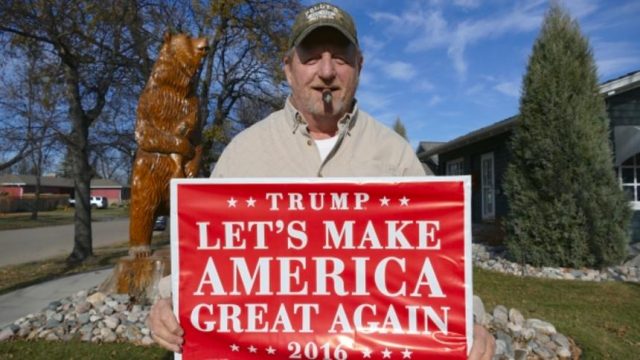For Over 100 Years North Dakotans Didn’t Have the Right to Free Speech on Election Day

The long, dreary national election ends today.
How long and dreary has it been? “In the time since the first major-party nominees announced their candidacy in early 2015, our then-5-month-old baby has become a walking, talking toddler and our spirited kindergartner has become an even more spirited second-grader,” my colleague Kris Kerzman writes in a column today.
That’s a long time.
Politics will be much on the minds of Americans today, perhaps more than any other day since the last national election day, which is apropos. America’s experiment in self-governance does not work without citizens choosing to engage in the process of governing. That begins with voting.
So you’d think, on election day, our 1st amendment right to speak our minds would be kind of an important thing. But in North Dakota, from 1911 through 2012, we citizens didn’t have the right to free speech on election day.
Here’s what Section 16.1-10-06 of the North Dakota Century Code used to read prior to 2012:
Believe it or not, a law in America banned people from engaging in political speech on election day. You couldn’t even have a sign for a candidate in your yard.
In fact, I remember every pre-2012 election day being met with a rash of accusations from the various campaigns about so-and-so not taking down their campaign signs, or so-and-so’s campaign continuing to run advertising in newspapers or on radio stations.
Thankfully in 2012 Gary Emineth, a former chairman of the North Dakota Republican Party, filed a federal lawsuit challenging the law and saw it overturned, but he got some flak for it. The North Dakota Democratic Party, along with Senator Heidi Heitkamp (who was on the ballot for her first term in the Senate that cycle) were critical of Emineth over the lawsuit.
They preferred the ban on free speech stay in place, the 1st amendment be damned. I think Heitkamp even cut some campaign ads about it, though I can’t seem to find any of them today.
Anyway, federal Judge Daniel Hovland ruled that the law was clearly unconstitutional: “The broad electioneering ban in North Dakota – which is designed to prohibit any ‘electioneering’ activity on the day of an election – cannot withstand a constitutional challenge,” he wrote in an order enjoining the law. “The demise of this archaic law enacted in 1911, to ‘secure the purity of elections,’ has long been recognized as inevitable.”
The Legislature has since removed the law from the books. Which is as it should be. But the legacy of this law remains. Many in North Dakota still think that political speech is verboten on election day.
Yesterday when I posted on Twitter that gubernatorial candidate Doug Burgum would be joining me for my election day show, one follower asked me if that is legal:
@robport, Burgum can be on the radio while the polls.are open tomorrow? I didn't that was legal. Not considered a form of campaigning m?
— Dave Wheeler (@DaveWheeler11) November 8, 2016
Many, back when the law was in place, praised it as a mandatory respite from non-stop campaigning. After this dreary cycle one can almost buy into that point of view.
Almost. This cycle there haven’t been that many campaign signs or bumper stickers, a reflection of the lack of enthusiasm for the national candidates and a lack of competitive races among the statewide candidates. That’s North Dakotans making their own decisions about their political speech.
Which is as it should be.
Speech – even tiresome, lame campaign speech – should always be unfettered and unlimited.





